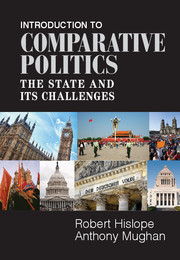6 - Globalization
Published online by Cambridge University Press: 05 June 2012
Summary
Wherever you are in the world at this moment, look at the products that populate your immediate surroundings. From where did they all come? As I survey my home office, I notice that the table I sit at was manufactured in China, as was the lamp that lights my workstation. The tablecloth on my table was woven in India, and so was the rug that covers my floor. While my coffee mug was made in Greenbush, New York, my shirt comes from Bangladesh, my pants from Mexico, some of my novels from Argentina and some of my music from Trinidad. Thousands of different workers living in numerous countries have produced and shipped the products that fill my immediate space. Even though I live in a small, quiet, relatively insular community, global forces have shaped what I wear, what I consume, how I work, and how I entertain myself. What is more, they are doing so increasingly and this incursion of the global on the local is what we refer to as globalization.
The starting point for understanding globalization is the everyday observation that people, goods, money, and ideas have moved across geographical distances since humankind began to trade. The entrepreneurial search for new markets, the development of trade routes, and the gradual expansion of the number and variety of goods bought and sold across distances all contributed to a process whereby different peoples and cultures were brought into closer and closer economic, cultural, and political contact. Although the term “globalization” has only entered the English language in recent decades, the integration and mutual dependency of peoples that constitute its essence are (1) as old as human civilization and (2) the product of interactions that include commerce, warfare and invasion, intermarriage, and migration from place of birth. Seen in this light, a useful definition of this phenomenon is the “proliferation of worldwide economic, social, and cultural networks, and people's dependence on these global networks for prosperity and security” (Mansbach 2000). People's lives and daily experiences, in other words, are broadened as they find themselves increasingly subject to people, ideas, food, information, and entertainment from territories more or less distant from their own.
- Type
- Chapter
- Information
- Introduction to Comparative PoliticsThe State and its Challenges, pp. 171 - 204Publisher: Cambridge University PressPrint publication year: 2012



